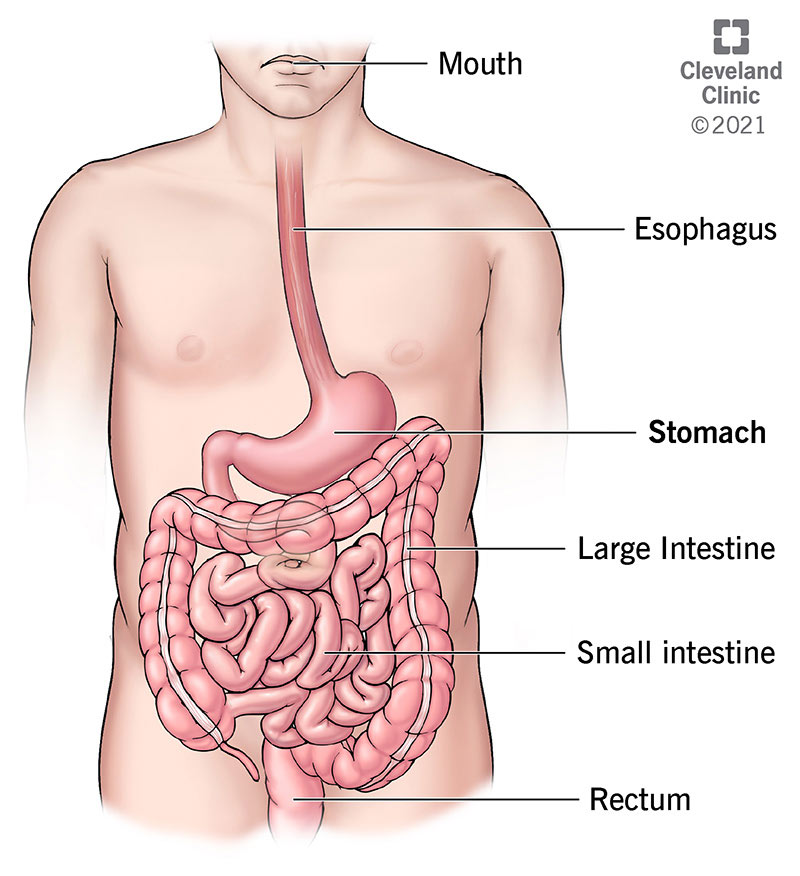Your stomach is a muscular organ that digests food. It is part of your gastrointestinal (GI) tract. When your stomach receives food, it contracts and produces acids and enzymes that break down food. When your stomach has broken down food, it passes it to your small intestine.

The stomach is a J-shaped organ that digests food. It produces enzymes (substances that create chemical reactions) and acids (digestive juices). This mix of enzymes and digestive juices breaks down food so it can pass to your small intestine.
Your stomach is part of the gastrointestinal (GI) tract. The GI tract is a long tube that starts at your mouth. It runs to your anus, where stool (poop) leaves your body. The GI tract is a key part of your digestive system.
Advertisement
Cleveland Clinic is a non-profit academic medical center. Advertising on our site helps support our mission. We do not endorse non-Cleveland Clinic products or services. Policy
Your stomach’s purpose is to digest food and send it to your small intestine. It has three functions:
Each part of your GI tract breaks down food and liquid and carries it through your body. During the digestive process, your body absorbs nutrients and water. Then, you expel the waste products of digestion through your large intestine.
Food moves through your GI tract in a few steps:
Advertisement
Your stomach sits in your upper abdomen on the left side of your body. The top of your stomach connects to a valve called the esophageal sphincter (a muscle at the end of your esophagus). The bottom of your stomach connects to your small intestine.
The size of the stomach varies from person to person. Your stomach expands when full and deflates when empty. Because of this, your stomach size can vary depending on how recently and how much you have eaten.
Advertisement
Your stomach has five distinct sections:
Several layers of muscle and other tissues make up your stomach:
Gastrointestinal diseases may affect your stomach. You may have gastrointestinal symptoms only under specific circumstances, such as getting heartburn during pregnancy. Or you may have a chronic (long-lasting) condition.
Common conditions that affect your stomach include:
You can make lifestyle changes to keep your stomach and digestive system healthy. You may:
If you have chronic stomach symptoms, you may speak with a gastroenterologist. Gastroenterologists are doctors who specialize in treating the digestive system. You may ask:
Call your healthcare provider right away if you have:
A note from Cleveland Clinic
Your stomach is a muscular organ in your upper abdomen. It is part of your GI tract. During digestion, your stomach contracts, relaxes and produces acids that help break down food. Your stomach size can vary depending on when and how much you have eaten. You can keep your stomach and digestive system healthy by eating healthy foods, exercising and managing stress.
Last reviewed on 09/10/2021.
Learn more about the Health Library and our editorial process.
Advertisement
Cleveland Clinic is a non-profit academic medical center. Advertising on our site helps support our mission. We do not endorse non-Cleveland Clinic products or services. Policy